Manchester firearms police: A unit in turmoil?
- Published
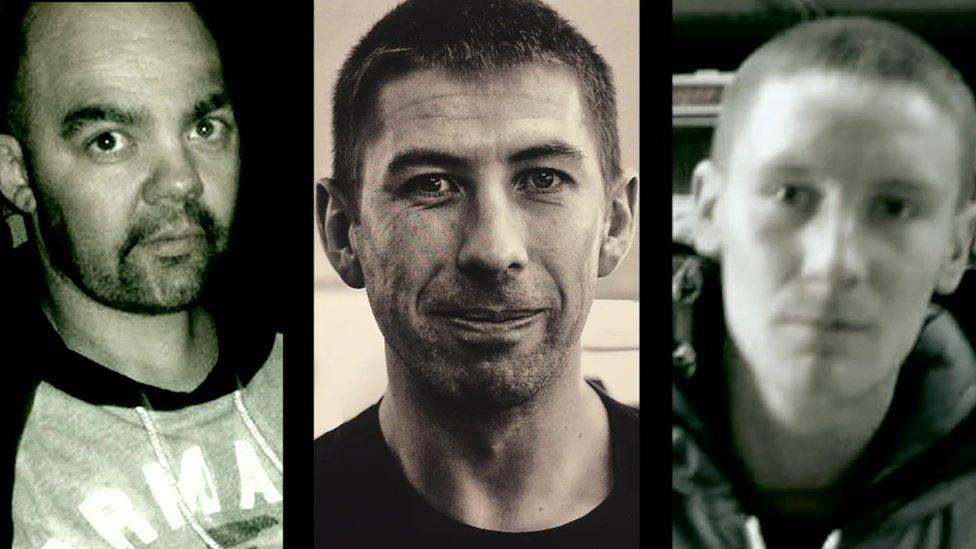
Anthony Grainger, PC Ian Terry and Jordan Begley were all killed in separate incidents
Greater Manchester Police is facing new investigations by the police watchdog over three separate fatal firearms incidents, the Victoria Derbyshire programme has learned.
It raises questions about the conduct of one of the UK's biggest firearms unit at a time when Manchester has recently been hit by a terror attack.
A public inquiry into one of the deaths has heard about flawed intelligence, a senior officer destroying notes and employment of an officer disciplined for assault.
Its former head of training, John Foxcroft, said he left the firearms unit due to its "aggressive" tactics.
Many of the officers in the cases are still serving.
Greater Manchester Police (GMP) said its firearms officers "volunteer for the role and do a very difficult job, quite rightly under the highest levels of scrutiny".
Here is the story of the three fatal incidents, with new findings uncovered by the Victoria Derbyshire programme's investigation.
Anthony Grainger
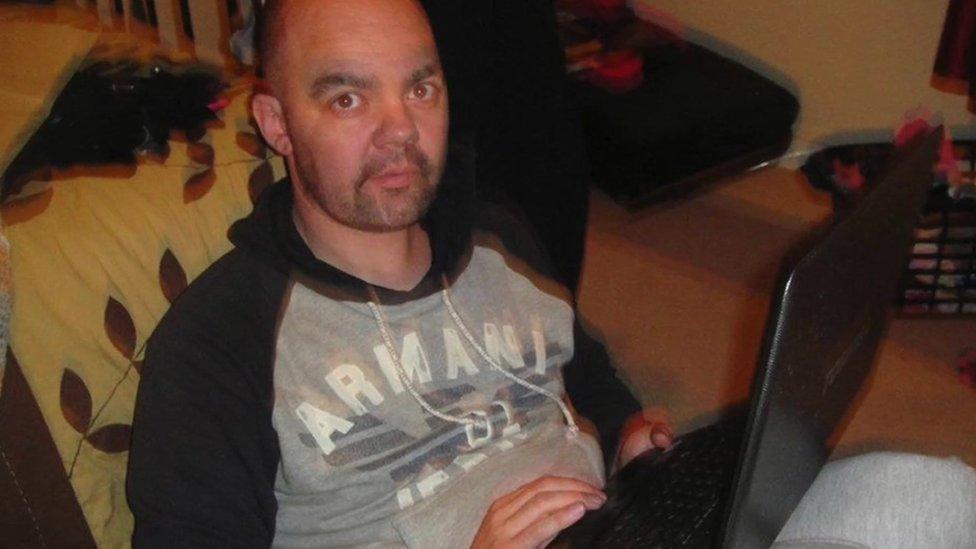
"He was a beautiful person inside and out," Anthony Grainger's partner Gail says.
The couple lived together with their two young children.
"I remember thinking, 'My life's perfect.' Then he nipped out - and he didn't come home."
Anthony Grainger was unarmed in a car when he was shot by police in Cheshire, in March 2012.
Police intelligence had suggested he was going to carry out an armed robbery with two associates, also in the car.
Mr Grainger had previously been found guilty of handling stolen cars, but had no convictions for violence.
The two other men did have convictions for violence. Police saw one as very dangerous.
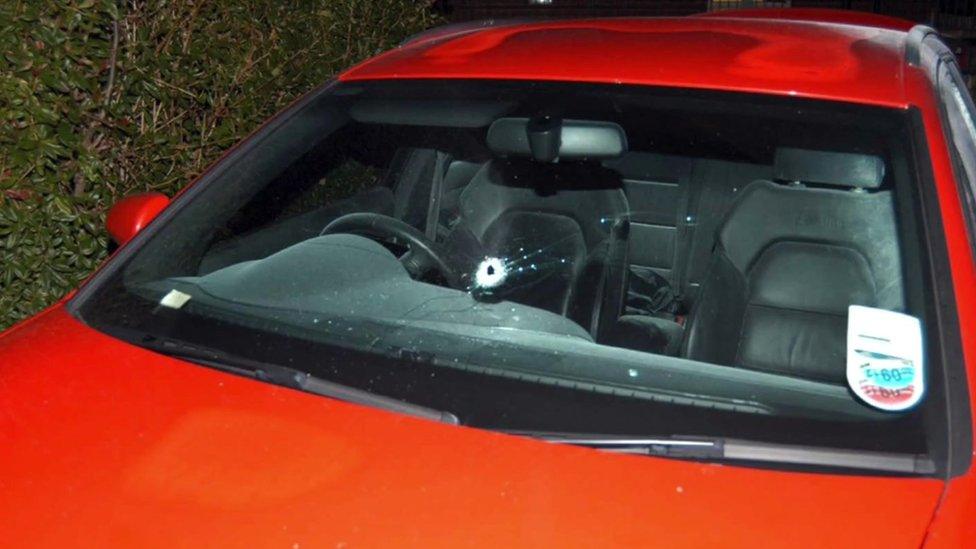
Anthony Grainger was killed by a police marksman
Mr Grainger was killed in a car park on a busy Saturday evening in the village of Culcheth.
Armed officers said they saw him drop his hands in a move interpreted as him going to grab a gun - he was shot once, fatally.
But another man in the car, David Totton, told the inquiry no warning was given before the shot was fired.
All three men in the car were unarmed.
Gail Hadfield-Grainger explains how she first heard her partner had been shot
On the day of the operation, the firearms team had been on duty for 14 hours when it was told to move in.
There were 16 firearms officers. Several had failed training courses and it was argued during the public inquiry they should not have been on the operation, which Greater Manchester Police disputed.
One officer, known as X7 - who had directed the operation on the ground - had failed a firearms course with the Met Police, who removed him early as his performance was "adversely affecting other students."
Another, known as Z15, had failed a safety course shortly before the operation after three extreme safety breaches in potentially life-threatening situations.
A firearms expert told the inquiry these were so "fundamental and inherently dangerous" that it should have led to Z15's "immediate suspension".
Martin Harding, a former superintendent and firearms officer with Greater Manchester Police, told the BBC: "A force such as Manchester has got resilience, so there shouldn't be a reason why you would have someone on a job who wasn't trained to carry out their role."
It emerged during the public inquiry that the officer who fired the gun - referred to as Q9 - had seriously injured a suspect during a previous arrest.
He had also been disciplined for assaulting two people. He was cleared of 10 other separate assault allegations - and remained a firearms officer.
This was not the last serious case Q9 was involved in, we have discovered there was another incident where his conduct was called into question.
All the firearms officers in the Grainger case were granted anonymity so will not talk about this other incident in detail.
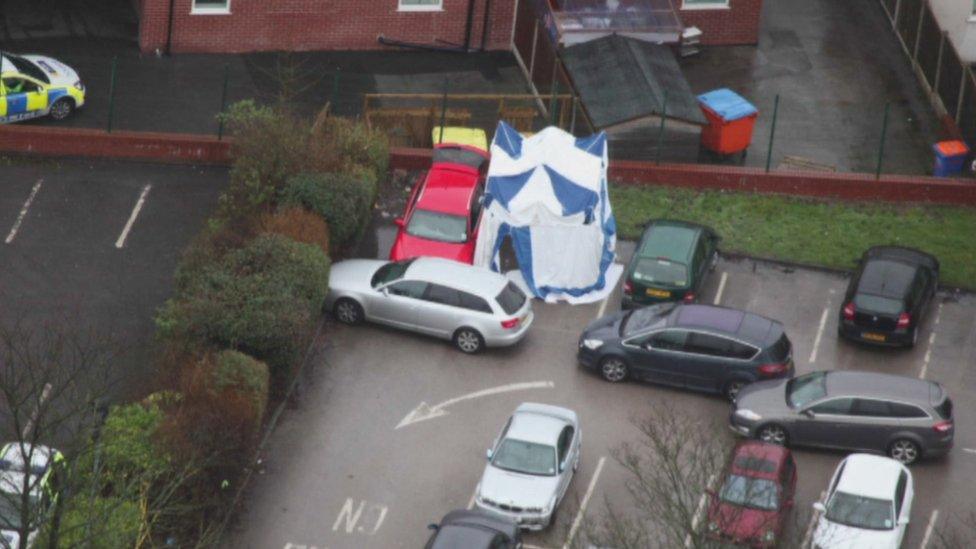
Questions over Mr Grainger's death go right to the top of Greater Manchester Police.
During the public inquiry, an assistant chief constable apologised for changing his record of the operation leading up to Anthony Grainger's death, and it was discovered the head of the firearms unit had destroyed his notes when he retired - a year after the shooting.
The police watchdog has launched a new investigation into the case.
It is the second time the Independent Police Complaints Commission (IPCC) has looked into the case - which is extremely rare. It told us it is examining evidence given at the public inquiry.
PC Ian Terry
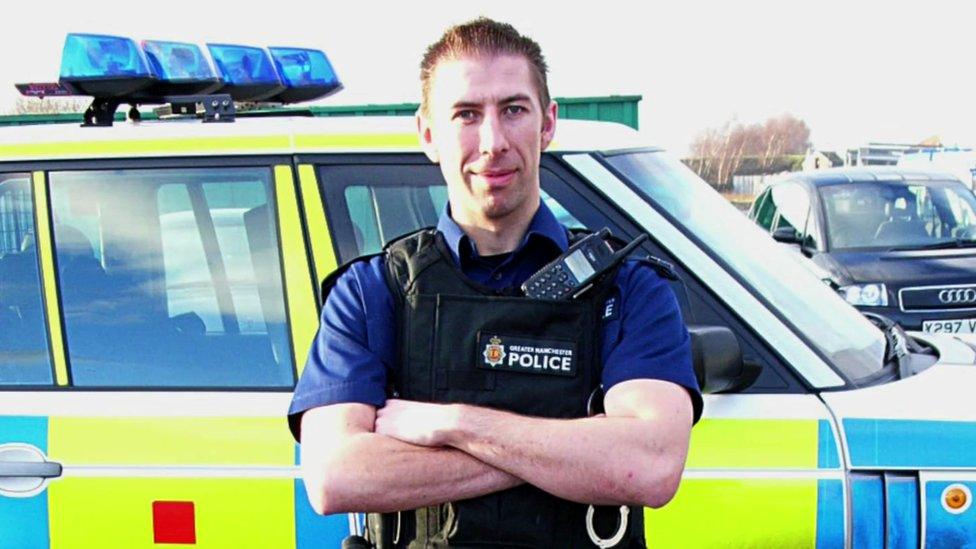
Ian Terry was a firearms officer with Greater Manchester Police.
In 2008, during a practice exercise at a disused factory, he volunteered to play the role of a criminal fleeing in a car.
Unusually, the decision - made just that morning - had been taken to use live rounds to make the exercise more realistic.
Mr Terry was shot by an officer using a shotgun loaded with a so-called Rip round cartridge - deadly at close range. He died within minutes.
The father-of-two was not wearing body armour.
His father, Roy Terry, said the family were told "he had been involved in an accident at work".
"We were allowed to believe it was some horrendous accident initially, which in the end it transpired it wasn't really."
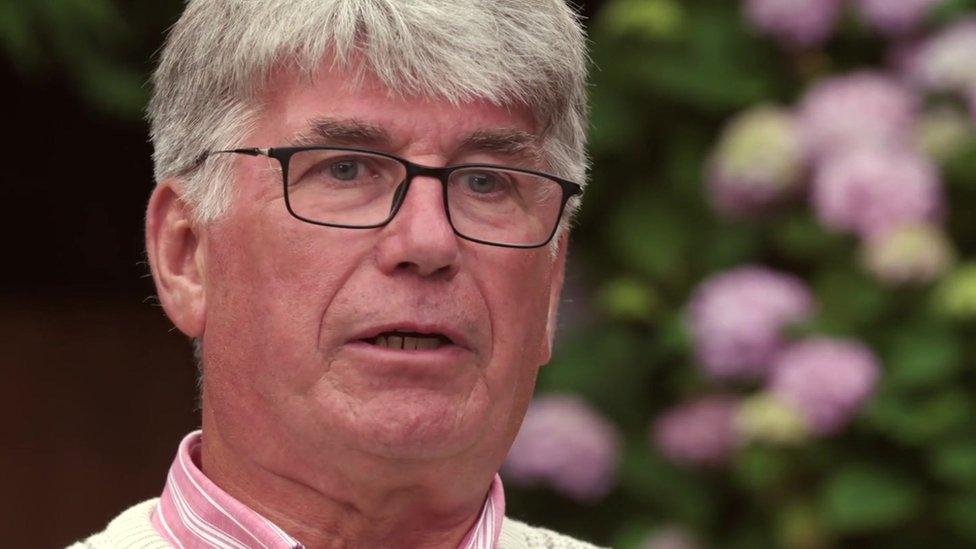
Roy Terry said the exercise in which his son died had been made "too dangerous"
The IPCC was scathing, calling the case "a shocking wake-up call for Greater Manchester Police firearms unit".
An inquest jury in 2010 ruled Ian Terry had been unlawfully killed and that he "would have been saved" if the training had been properly prepared.
His father Roy Terry said the exercise had been made "too dangerous".
"We got the impression that the firearms officers were more or less allowed just to get on and do their own thing," he added.
John Foxcroft, who ran the firearms training unit at Greater Manchester Police until 2006, before retiring in 2008, told the programme he left the position believing that the force was "getting a little bit too much into the aggressive tactics".
"The more aggressive you get, the more likely you are to have people shot."
The Crown Prosecution Service said there was not enough evidence to bring criminal charges against any officers but Greater Manchester Police was fined for health and safety offences.
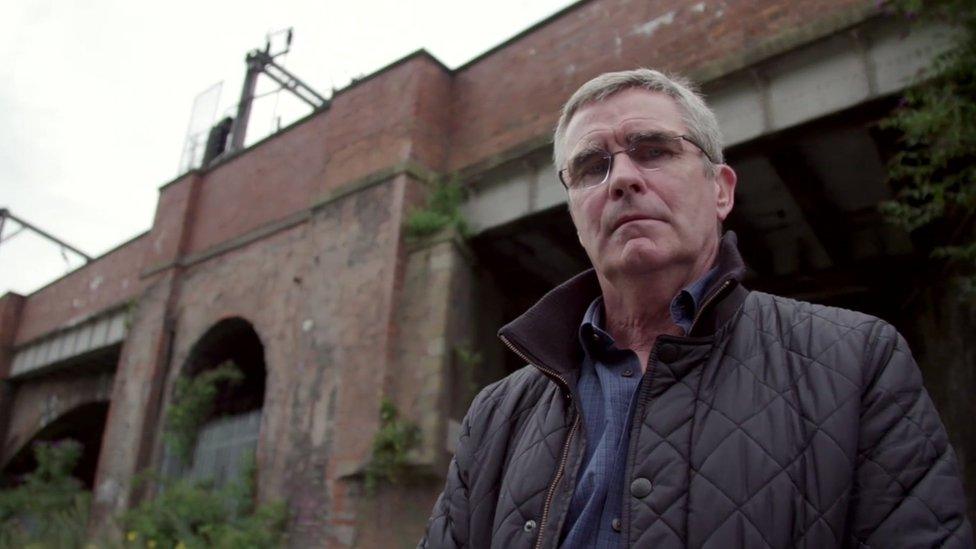
John Foxcroft, ex-head of training at the firearms unit, claims tactics were becoming too "aggressive"
In 2014, one of the officers who organised the training was fired from the force.
The man who shot Ian Terry was disciplined but still works for the police.
Roy Terry said this was "not totally satisfactory, but all we were going to get".
The BBC has now discovered there is a new investigation by the IPCC into the case, nine years after Ian Terry was killed.
The police watchdog said it has started an investigation looking at evidence given by a number of officers to the IPCC, to the inquest into PC Terry's death, and to a subsequent Health and Safety Executive (HSE) crown court trial.
GMP's Det Ch Supt Paul Rumney said the force "will consider any recommendations made" by the the public inquiry.
Jordan Begley
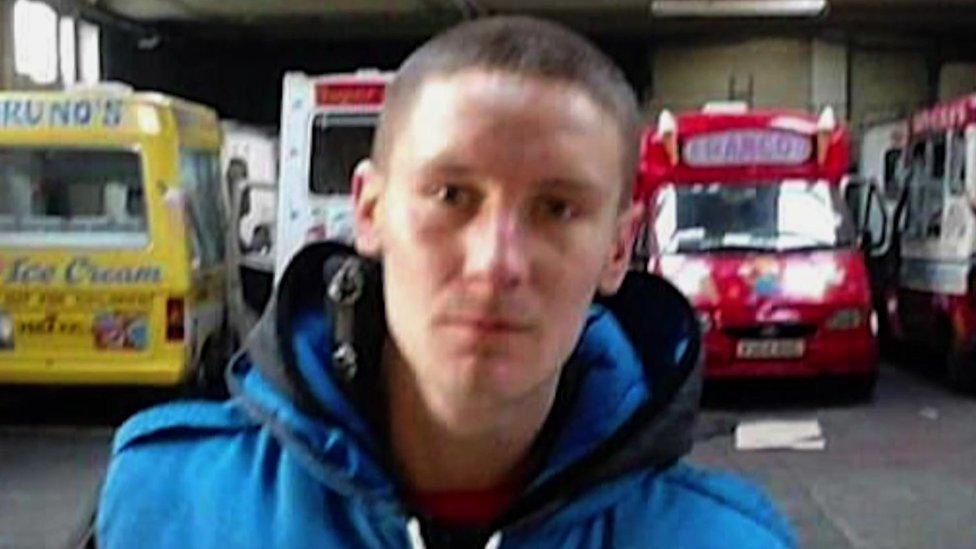
Jordan Begley was 23. He worked in an ice-cream factory near his home in Gorton in Manchester.
On the night of his death, in July 2013, he had been involved in a drunken argument with his neighbours, and was threatening to attack them with a knife. His mother called the police.
"I need the police here. You need to get the police here. Jordan stay here, you're not going out," she can be heard saying in the recorded 999 call.
A patrol officer calmed him down - then other officers arrived, 11 in total, including armed police.
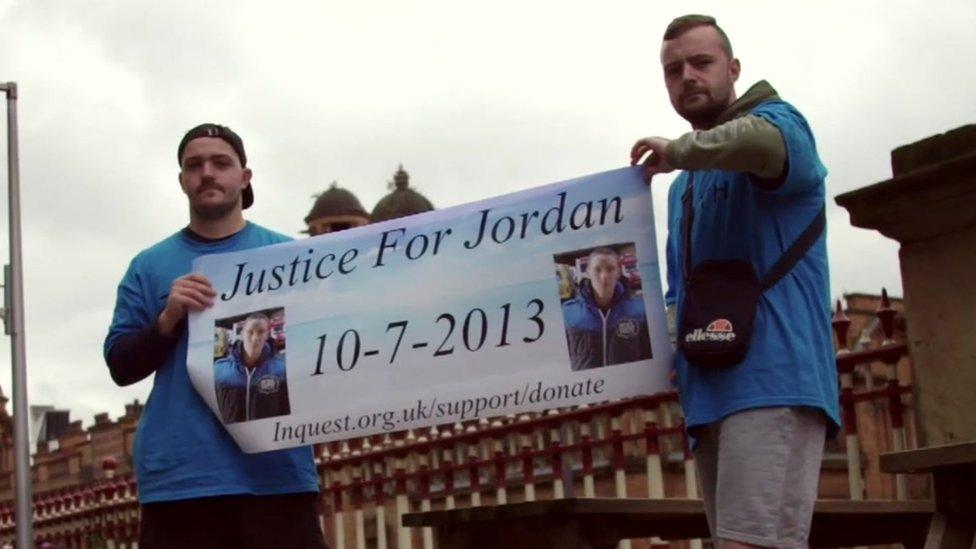
Mr Begley was Tasered and restrained by armed officers. He was punched while he was on the ground and died from heart failure.
"It was a shock. They didn't need that many officers for one person. He was harmless," his cousin Conor Turner explained.
At a 2015 inquest the jury found police failings played a part in his death and said he had been unlawfully killed.
It said the force "inappropriately and unreasonably" used the Taser for longer than was necessary, once he was on the floor,+ the firearms officers did not try to establish whether he was conscious, and that during restraint Mr Begley "offered minimal resistance" with "no need" to punch him twice.
The police were initially cleared of any blame but after the inquest the police watchdog quashed its first report and started a new investigation - which had never been done before.
Watch the Victoria Derbyshire programme on weekdays between 09:00 and 11:00 on BBC Two and the BBC News channel.